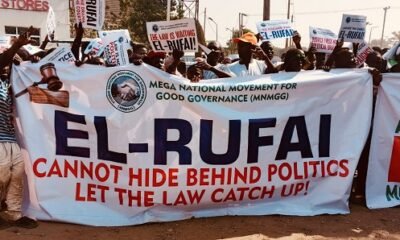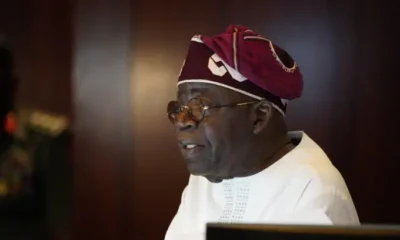Business
Mass layoff: Disengaged staff members sue CBN, demand N30bn compensation
Former staff members of the Central Bank of Nigeria (CBN) who were dismissed in a mass layoff last year, have sued the apex bank.
In a court document seen by TheCable on Monday, the workers alleged that the CBN violated internal policies, Nigerian labour laws, and their contractual rights.
The claimants, represented by Stephen Gana and 32 others, filed a class action lawsuit at the national industrial court of Nigeria (NICN), Abuja.
They said their termination process, carried out through letters, titled, ‘Reorganizational and Human Capital Restructuring’, and dated April 5, 2024, violated both the CBN human resources policies and procedures manual (HRPPM) and Section 36 of the Nigerian constitution.
The claimants said the process lacked the necessary consultation and fair hearing mandated by law.
The originating summons, filed on July 4, 2024, under the NICN Civil Procedure Rules 2017, raised several questions for the court to consider, including whether the claimants were denied their constitutional right to a fair hearing before and after their appointments were terminated.
The workers also claimed that the termination letters, issued on the basis of “restructuring,” were arbitrary, illegal, and unconstitutional.
Insisting that they continue to work for the apex bank, the claimants are seeking a court ruling that their dismissals are “void and useless”.
Additionally, they sought a restraining order to prevent the CBN from firing them without following the proper procedures, immediate reinstatement, and payment of salaries and benefits from the date of termination.
The court filing references Article 16.4.1 of the HRPPM, which mandates consultation with the joint consultative council (JCC) and adherence to fair procedures before employment actions adversely affect staff.
The claimants said the provision was flagrantly disregarded, as they were given just three days to vacate their positions and hand over official property.
They are also seeking N30 billion in general damages for psychological distress, hardship, and reputational harm caused by the dismissal; and an additional N500 million as the cost of the suit.
COURT ENCOURAGES AMICABLE RESOLUTION
In another document dated November 20, 2024, the court called for an amicable resolution of the matter.
Gana and their counsel represented the claimants while Inam Wilson alongside seven other lawyers represented the CBN (the defendant).
In the document, Obaseki Osaghae, the presiding judge of the industrial court, acknowledged the defendant’s preliminary objection, filed on November 4, 2024, challenging the suit’s admissibility.
The claimants responded with a counter-affidavit, which their counsel confirmed had been served.
In response, the judge encouraged both parties to explore a settlement under Section 20 of the National Industrial Court Act (NICA) of 2006.
“It is my view that parties should attempt an amicable resolution of this dispute,” Osaghae said.
The matter was, therefore adjourned to January 29 for the hearing of the preliminary objection or to review the progress of any settlement discussions.





















